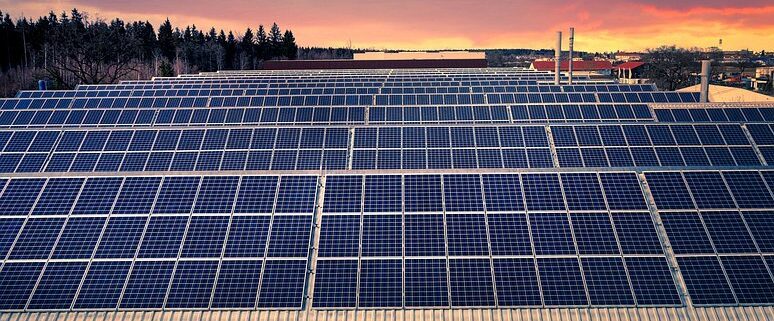Beyond Cancer Cell Ideology: Reframing the Demand for Basic Income in a Time of Mass Extinction
Kate McFarland
Associate Director, Ohio State University Center for Ethics and Human Values
“Growth for the sake of growth is the ideology of the cancer cell.” – Edward Abbey
BIEN co-founder Philippe van Parijs has often recounted, as in his TEDxGhent talk, that he conceived the idea of a basic income while contemplating the need to address poverty and unemployment without reliance on the ecologically unsustainable goal of limitless growth.
Although this “degrowth” perspective on basic income is less common in the American discourse, Van Parijs has not been alone; connections between the degrowth and basic income movements have become relatively well established in Europe [1]. Gabriela Cabaña, a doctoral student at the London School of Economics, has described the connection in an interview for openDemocracy:
“One of the things you hear whenever you talk about degrowth is that, if the economy doesn’t grow, people are going to be without jobs, people will go hungry, and no one wants that. … You hear this argument mostly in countries from the Global South, like my own. This misses the point. Degrowth is a critique of our dependency on work. … Basic income goes well with the ideas of slowing down the economy, of becoming less dependent, and of stopping the increasing and continuous production of stuff that we don’t really need.”
In early 2020, as governments instituted sweeping lockdowns in the face of the COVID-19 pandemic, it appeared that degrowth might have a moment. In this context, over 2,000 supporters signed an open letter that, among other demands, calls for the organization of society around the “provision of essential goods and services.” Although unnecessary consumption must be curtailed, the authors maintain that “basic human needs, such as the right to food, housing, and education, have to be secured for everyone through universal basic services or universal basic income schemes.”
While the degrowth movement typically focuses on the reduction of consumption and production, other ecologically-minded thinkers have meanwhile proposed a basic income as means to support falling birth rates. As Shann Turnbull writes in an article for The Ecological Citizen, the policy can “remove the need for children” to provide income for pensioners.
* * *
It is not my present goal to argue that a basic income would, in fact, facilitate a planned recession or shrinking population. I am only to broach this critical topic, which is too often missing from conversations about basic income in the US. As human demands deplete the planet’s resources and eradicate its wild inhabitants, it is degrowth and a steady-state economy, not an “economic stimulus,” that ought to be our most pressing objective.
In making this claim, it is important to acknowledge not only climate change but also the oft-neglected crises of biodiversity loss, wildlife population loss, and habitat destruction. According to the 2020 Living Planet Report, terrestrial vertebrate populations have decreased by an average of 68 percent in the last 50 years. Invertebrate populations are also under stress; a 2019 metastudy concluded that 40 percent of insect species are at risk of extinction. The recent and comprehensive IPBES Global Assessment Report found that, overall, as many as one million species of animals and plants are now threatened with extinction.
This “sixth mass extinction” is a biodiversity crisis of a magnitude not seen within the past 65 million years, and its primary driver is the loss, fragmentation, and degradation of habitat due to agriculture, infrastructure, and other human activity. At present, three-quarters of land and two-thirds of marine environments have been significantly altered by human actions. If trends continue, 95 percent of the Earth’s land will be degraded by 2050.
A popular myth holds that the COVID-19 pandemic has been good for nature. To be sure, early lockdowns did reduce travel and commerce and, correspondingly, humanity’s collective ecological footprint. The pandemic also demonstrated, however, that even such sweeping lockdowns are insufficient to conserve nature. Consider, for example, Earth Overshoot Day, the date designated to mark the date on which humanity’s collective consumption of natural resources has exhausted the Earth’s capacity to regenerate it. In 2019, the day fell on July 29. In 2020, due to the effects of the pandemic, it did not arrive until August 22 — the latest Earth Overshoot Day since 2005. While this is an improvement, it still falls far short of sustainability. It’s essential to keep in mind, moreover, that this is a global average. If the entire world’s population were to live like the average American, Earth Overshoot Day would occur as early as March 14.
When we take seriously mass extinction, wildlife population declines, and other environmental crises beyond climate change, it is simply a red herring to propose “green growth” and a transition to renewable energy sources as a solution. Indeed, renewable energy itself is another form of development that threatens wildlife and biodiversity through habitat destruction. Hydroelectric dams are among the worst offenders, segmenting habitats, blocking fish migration, and interfering with the flow of nutrients in freshwater ecosystems. The ecological consequences of hydropower are so significant, in fact, that over 150 conservation organizations have recently signed a “manifesto” demanding no new dams in Europe.
Wind and solar power are also far from ecologically innocent. On the contrary, wind and solar plants consume about 10 times as much land as fossil fuel plants, and a March 2020 report revealed that 17% of the world’s existing renewable energy plants have been built in protected areas, with an additional 900 plants being developed in key biodiversity areas. Furthermore, the production of wind and solar facilities relies heavily on environmentally destructive mining, which threatens to imperil more important wildlife habitats. Of course, any new power plant (renewable or otherwise) also typically requires additional infrastructure, such as roads that may fragment habitats and power lines, which are already responsible for millions of bird deaths annually.
Furthermore, as long as “green energy” and “green growth” are presented as the holy grail, there is a risk that carbon-neutral energy sources will create a moral hazard; that is, the transition to renewables may mask the continued need to reduce energy consumption, spurring demand for yet more infrastructure and exacerbating its deleterious effects on nature and wildlife. What is needed is not only renewable energy but also less energy usage, less development, and less material consumption. What is needed is not “green growth” but degrowth.
To be sure, not all economic activity is ecologically damaging. Indeed, not only conservation but also restoration is necessary to reverse habitat destruction, and large-scale restoration projects would in themselves result in the creation of numerous jobs. Increased consumer spending also does not necessarily entail a greater ecological footprint. One might even imagine consumers choosing to spend more to purchase more durable goods, more energy-efficient appliances, local and organic produce, and other “greener” choices, or they might spend money on services of negligible environmental impact.
However, as Iago Otero, et al, describe in the recent article “Biodiversity policy beyond economic growth” (Society for Conservation Biology), a decoupling of growth from biodiversity loss is a mere theoretical possibility that has not actually been observed. Furthermore, while a few countries have incorporated ecological restoration into their COVID recovery plans, most have not. Moreover, even if it were possible to decouple economic growth from biodiversity loss, we should further question whether growth is desirable. Human material needs are, after all, finite. Perhaps it is past time for society to turn its focus to other forms of “growth,” such as the cultural, intellectual, moral, and spiritual, which do not depend on ever-increasing material wealth.
* * *
It is in the above context, I submit, that basic income is most appropriately broached.
We should note here that the prevention of material poverty, as discussed at the outset of this post, is only one aspect of the demand. It is also essential that people be able to find meaning and value in goals and activities beyond earning and consumption. A reconceptualization of the “good life” must be a component of a successful conservation strategy. In their well-known “Basic Principles of Deep Ecology,” for example, George Sessions and Arne Naess call for an ideological change of “appreciating life quality (dwelling in situations of inherent value) rather than adhering to an increasingly higher standard of living.” More recently, Ana María Hernández Salgar, Chair of IPBES, has stated that the goal of protecting and restoring nature also requires “a change in our understanding of what constitutes a good quality of life – decoupling the idea of a good and meaningful life from ever-increasing material consumption.”
Degrowth needn’t be presented as a sacrificial burden. On the contrary, as practitioners of downshifting and voluntary simplicity already recognize, life is often more peaceful, rich, and fulfilling when one removes oneself from the felt imperative to earn and consume — a worthy goal even in the absence of ecological necessity. A basic income cannot by itself imbue our lives with meaning. Quite plausibly, however, it is easier to think about how to lead meaningful lives outside of a materialistic, profit-driven culture when we are not constrained by a need to monetize our passions and interests in order to earn a living.
In his introduction to the classic A Sand County Almanac, Aldo Leopold raised the question of “whether a still higher ‘standard of living’ is worth its cost in things, natural, wild, and free.” Today, over 70 years and 5 billion people later, the answer can only be no: the ecological cost of our standard of living, even at present levels, is already far too great for the Earth to bear. Despite this, the status quo in policymaking is not only to prioritize a “still higher ‘standard of living” but also to take for granted that there is no other option. Basic income is not a standalone policy to address ecological crises (see, e.g., “Ensuring a Post-COVID Economic Agenda Tackles Global Biodiversity Loss” by Pamela McElwee, et al, for a suite of other policy ideas). It may, however, open the door to envisioning options beyond the goal of limitless growth.
[1] See, e.g., Ronald Blaschke’s overview in Degrowth in Movements. For further recent analyses, see Jorge Pinto’s discussion of “ecological basic income” in his paper “Environmentalism, Ecologism, and Basic Income” (2020, Basic Income Studies) and Howard, Pinto, and Schachtschneider’s chapter “Ecological effects of basic income” in The Palgrave International Handbook of Basic Income (2019).





Trackbacks & Pingbacks
[…] The final argument I’ll consider relates UBI to the environment and conservation. As I said in the previous paragraph, businesses in a market economy produce goods and services for consumers to buy. The problem is that the current capitalist form of such an economy exacerbates global climate change, destroys the habitats of various non-human species, and has other destructive consequences for our natural environment. Many economists and others tend to focus on the importance of more economic growth. Those UBI supporters concerned about our current economies’ impact on the natural environment argue that less, not more, growth is needed. They argue that a UBI, by curtailing labor supply and, thereby, curtailing production, could play a role in fostering less economic growth (see Kate McFarland’s opening statement (as well as those of others) here: https://www.youtube.com/watch?v=azFG0D0O038 and her post here: https://usbig.net/beyond-cancer-cell-ideology-reframing-the-demand-for-basic-income-in-a-time-of-mas…). […]
[…] The final argument I’ll consider relates UBI to the environment and conservation. As I said in the previous paragraph, businesses in a market economy produce goods and services for consumers to buy. The problem is that the current capitalist form of such an economy exacerbates global climate change, destroys the habitats of various non-human species, and has other destructive consequences for our natural environment. Many economists and others tend to focus on the importance of more economic growth. Those UBI supporters concerned about our current economies’ impact on the natural environment argue that less, not more, growth is needed. They argue that a UBI, by curtailing labor supply and, thereby, curtailing production, could play a role in fostering less economic growth (see Kate McFarland’s opening statement as well as those of others here and here). […]
[…] Beyond cancer cell ideology: reframing the demand for basic income in a time of mass extinction (Kate McFarland, U.S. Basic Income Guarantee) […]
Leave a Reply
Want to join the discussion?Feel free to contribute!